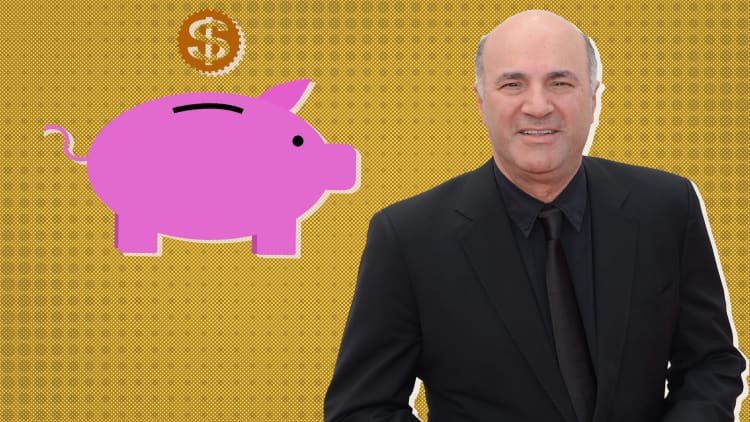Editor's note: This story was updated with McDonald's adding Beyond Meats products on Thursday.
McDonald's has recently upped its drive-thru tech, taken a stance on harassment in the workplace and partnered with delivery service GrubHub. As the company continues to reinvent itself, not only is it good for business, but it's also proven to be a positive for longtime shareholders.
If you invested in McDonald's 10 years ago, that decision would have paid off. A $1,000 investment in 2009 would be worth more than $5,000 as of Sept. 20, 2019, for a total return of around 400%, according to CNBC calculations. In the same time frame, by comparison, the S&P 500 earned a total return of nearly 250%. The fast-food giant, which went public in 1965, has a current share price around $212.
While McDonald's stock has done well over the years, any individual stock can over- or underperform and past returns do not predict future results.
CNBC: McDonald's stock as of September.
How McDonald's reinvents its brand
Although the company has been around for decades, McDonald's continues to innovate. To enhance its drive-thru experience, the company recently agreed to acquire Apprente, a Silicon Valley-based artificial intelligence company. In March, it began installing technology from Dynamic Yield, another recent acquisition, into more than 8,000 drive-thru machines around the U.S. The machine learning tech allows menus to change based on the time of day, restaurant traffic, weather and the customer's order.
That isn't the first time McDonald's has given stores a tech revamp: In June 2018, the burger chain began adding self-order kiosks at 1,000 restaurants per quarter.
When it comes to delivery service, McDonald's recently partnered with GrubHub and its sister brand Seamless to offer delivery from around 500 locations in New York City and the tri-state area. McDonald's has its eyes set on making delivery a $4 billion business this year.
The burger chain is also taking steps to mitigate its environmental impact: Last week, McDonald's announced that select locations in the U.K. and Ireland will test out giving kids the option to choose a fruit pack rather than a plastic toy when ordering a Happy Meal. And early next year, it plans to introduce books in place of its traditional children's meal toys, Reuters reports.
Its decision to test no-toy meals comes in response to criticism it received earlier this year over the distribution of plastic toys. In Britain, two young girls, Ella and Caitlin McEwan, first created a Change.org petition eight months ago calling for McDonald's and one of its biggest rivals, Burger King, to stop giving out plastic toys in order to protect the environment. The petition has received more than 550,000 signatures and counting.
The future of McDonald's
On Sept. 26, 2019, McDonald's announced that it would begin testing plant-based burgers at select locations in Canada using patties from Beyond Meat, a Los Angeles-based producer of plant-based meat substitutes.
Consumers have been wondering when McDonald's would add meatless menu items, especially given that several of its biggest competitors did so earlier this year.
In May, McDonald's CEO Steve Easterbrook said on CNBC's "Squawk on the Street" that he needed to know whether adding plant-based options will be good for business before doing so.
"When you look at the whole meat-substitute type ideas, I think what will be interesting for us will be to see who is particularly interested in that," Easterbrook said. "Is it an existing customer who just wants an alternative option; does it bring a new customer in?"
During the segment, Easterbrook compared McDonald's dilemma over meatless menu items to the difficult decisions the company had to make in 2015 when adding all-day breakfast to the menu. Specifically, Easterbrook cites "the complexity" involved when adding new menu items given the huge number of people McDonald's serves daily.
With all-day breakfast, same-store sales increased for several consecutive quarters, but competitors were quick to jump on the breakfast bandwagon and add to their selections, CNBC reports. As a result, McDonald's ultimately decided in 2019 to scale back all-day breakfast options in an effort to make service more efficient.
Despite any delay in permanently adding plant-based items to its lineup, the business remains successful. Over the past year, its stock grew a healthy 28%. However, despite McDonald's stock reaching a record high this summer, traders seem to be on the fence about investing in the company.
While he refers to McDonald's as "a great stock," Joseph Terranova, a senior managing director at Virtus Investment Partners, said recently on CNBC's "Halftime Report" that he's currently hanging on "nervously" to McDonald's given the recent downturn in its share price. If this continues, he says the company's shareholders may feel pressure to sell.
If you are considering getting into investing, experts such as Warren Buffett often advise starting with index funds, which hold groups of stocks, such as names from the S&P 500. Since index funds fluctuate with the market, they're less risky than individual stocks, making them a safer choice for beginners.
Buffett has also been known to give two general pieces of advice to investors. First, he says to invest in companies that have long-term value. Second, he advises investing in businesses you understand. In his annual shareholders' letter from 1996, Buffet wrote: "What an investor needs is the ability to correctly evaluate selected businesses. Note that word 'selected': You don't have to be an expert on every company, or even many. You only have to be able to evaluate companies within your circle of competence."
Here's a snapshot of how the markets look now.
Like this story? Subscribe to CNBC Make It on YouTube!
Don't miss:



